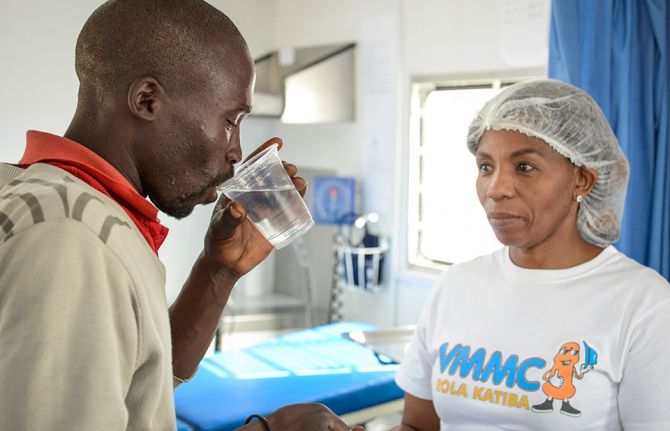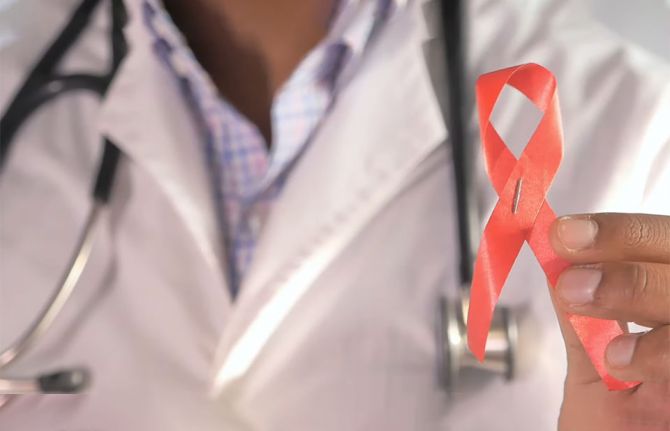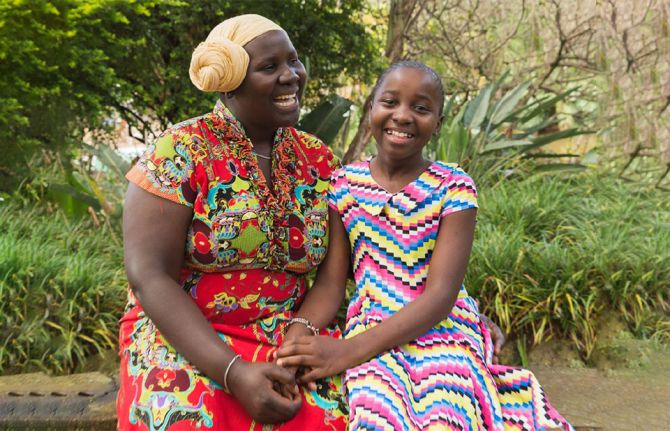

An AIDS 2014 delegate shows his support for reducing the global burden of HIV and TB.

Anthony Fauci of the U.S. National Institute of Allergy and Infectious Diseases speaking at the WHO TB session during the AIDS 2014 conference in Melbourne, Australia, 20 July 2014.
Update
Eliminating tuberculosis deaths: time to step up the HIV response
20 July 2014
20 July 2014 20 July 2014Over the past 10 years there has been significant progress in the response to HIV-related tuberculosis (TB), with a scale-up of integrated TB and HIV interventions saving an estimated 1.3 million lives between 2005 and 2011. However, tuberculosis accounted for some 320 000 AIDS-related deaths in 2012, and the vast majority of countries (more than 80%) are still not providing preventative TB drug therapy for those who need it.
A high-level consultation, held on 20 July during AIDS 2014 in Melbourne, Australia, gathered leaders in the global response to HIV to work towards eliminating TB deaths, stepping up the HIV response and achieving greater political commitment to this critical but often overlooked issue.
The meeting reviewed progress in regional and global responses and analysed gaps and barriers to achieving the elimination of TB/AIDS-related deaths, which include a critical need for point-of-care diagnostic tools for tuberculosis and the simplification of drug regimens. Participants also identified crucial next steps, such as opportunities to fill research gaps and promote much needed innovation.
Hosted by the World Health Organization (WHO), the session was chaired by Hiro Nakatani, Assistant Director-General for HIV/AIDS, Tuberculosis, Malaria and Neglected Tropical Diseases, WHO. Participants included Gottfried Hirnschall, Director of the Department for HIV/AIDS, WHO, Mark Dybul, Executive Director, Global Fund to Fight AIDS, Tuberculosis and Malaria, Ambassador Deborah Birx, United States Global AIDS Coordinator, Anthony Fauci, Director, National Institute of Allergy and Infectious Diseases, and Lucy Chesire, Executive Director, TB Action Group, as well as government representatives of Cambodia, India and Viet Nam.
Quotes
"Progress has been made and much of it in highly impacted countries in southern Africa."
"If 70% of tuberculosis patients with HIV know their status, it is unacceptable that only 50% of them are being treated for both diseases in a number of sub-Saharan African countries."
"All public health communities must come together in the interest of individuals suffering from and at risk for multiple diseases."



